Every Angler wants to have a clean and sunny day so they can go fishing without having any difficulty. But, it’s the weather, which changes in no time. Sometimes it’s raining while sometimes a big storm is in the water. This article will answer you if it is good to fish after a storm.
So, is it wise to go fishing after a storm? It depends on several aspects that I’m going to cover in this article. Make sure you stick to the end so you can decide whether or not you should go fishing after a storm.
Without lecturing more, let’s make our way to the topic.
Contents
Fishing Before a Storm
Fishing before a storm can be both exciting and challenging. Fish are often more active and feed aggressively before a storm, making it an ideal time to catch a big one. However, as the weather changes, so do the conditions of the water. Wind and waves can make it difficult to keep your boat stable and your line in the water. Thunder and lightning can also pose a safety risk for anglers, and it’s important to monitor the weather closely and plan to get off the water if conditions become dangerous. Despite the challenges, fishing before a storm can be a memorable and rewarding experience for those who are prepared and willing to take on the elements.
Fishing During a Storm
Is it a good idea to go fishing during the storm? Numerous types of fish could quiet down during a storm.
The dropping barometric will be at the most minimal while the water is being worked up, particularly on the shallow piece of the water. Assuming your purpose for fishing is to get bass, this is the time they will stow away. It usually happens with those larger fish that live at the base of the water.
However, fishing in a storm can be incredibly dangerous and should be avoided whenever possible. While fish may still be active during a storm, the high winds and rough waves can make it difficult, if not impossible, to safely navigate the water. Lightning strikes are also a significant risk for anglers during a storm, as they can easily strike fishing rods and metal boat components. It’s essential to monitor the weather closely and be prepared to end your fishing trip early if conditions start to deteriorate. While fishing before a storm can be an exciting experience, fishing in a storm should always be avoided to ensure the safety of everyone on the water.
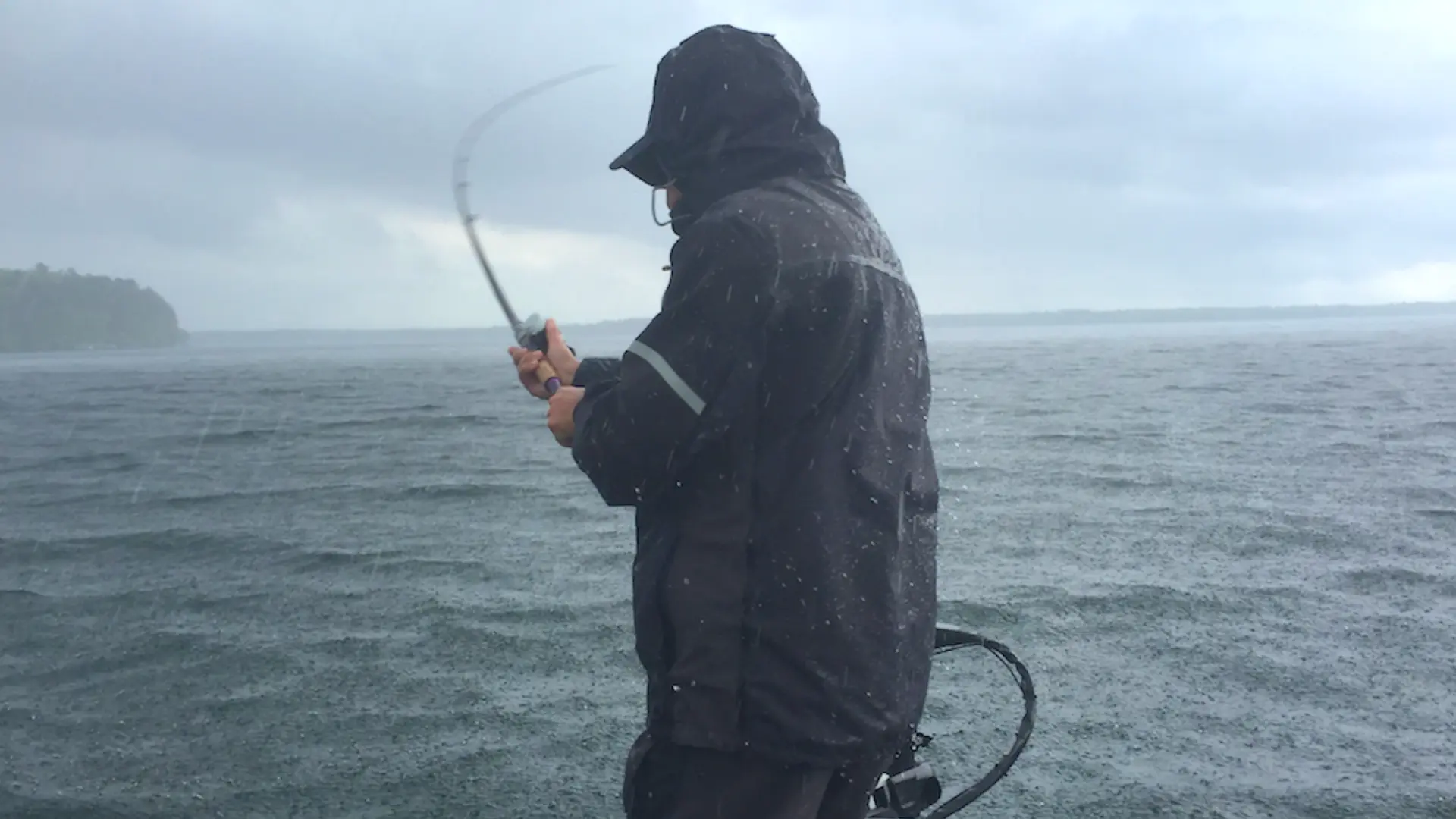
Fishing After a Storm
Fishing after a storm can be a great opportunity to catch some fish, as the fish will be active in the water. But you must be rustled up properly and have the equipment to catch fish after a storm.
When the Storm ends, the barometric pressure starts hiking up again. So, it’s the best time to put a bit into the water and expect some fish to come out. A dropping pressure is way better than a rising pressure. It will allow the frenzied fish to come out of the bass and look for the food; it will be more likely to catch your bait. Therefore, the fish that were hiding will now come out of the water and get active again.
The answer to the question ‘is fishing good after a storm?’ is not a simple yes, but this yes should be followed by the proper fishing-after-a-storm techniques.
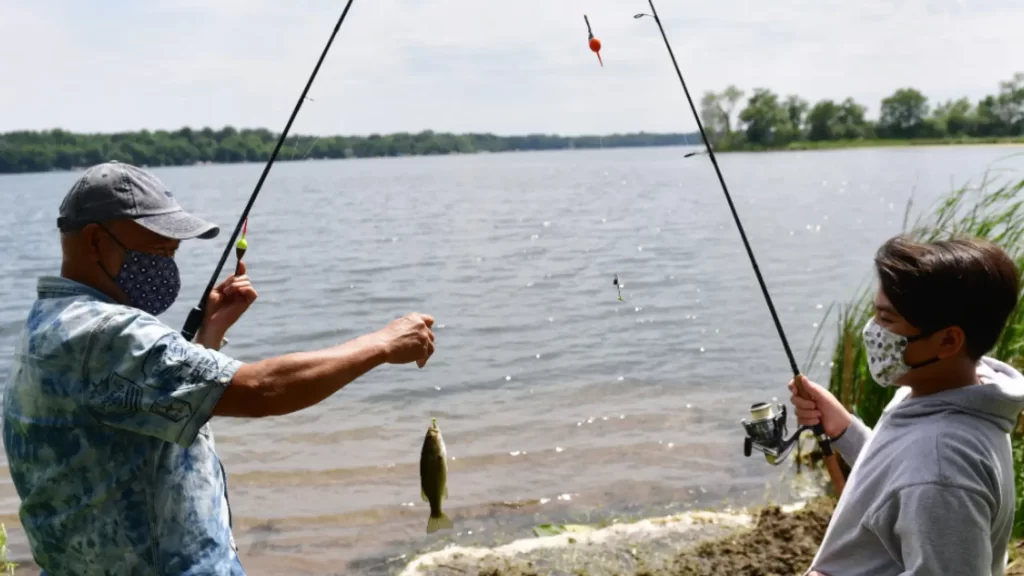
Strategies For Fishing After A Storm
Fishing is not ideal after a storm, especially if you’re a novice angler. But, if you can’t live without fishing or you’re willing to experience fishing in this exceptional weather, then you can do it. But, ensure you keep the below-mentioned things in mind for fishing after a storm.
1) Get Fishing Equipment.
Fishing is all about good equipment. If you are new to fishing and searching for cheap fishing reels to start, you can check here.
As you’re going fishing after a storm, it’s crucial that your fishing rod is geared up. So, get the best gear for fishing. I know it’s pricey, but it’s a must in this type of fishing. Also, you need to have a barometer when you go fishing after or before a storm.
A barometer will help you in a lot of ways. Like, it will tell you about the pressure of water, when it will hike or go down, and measure the wind speed, high tides, water temperature, altitude, and the humidity in the air. When you know about all these things, you’ll be able to get the best experience of fishing after a storm, and you will find yourself that is it good to fish after a storm.
Another important piece of equipment is a GPS fishing finder, which helps you to find the location of the fish, so you don’t waste your time roaming around in the water.
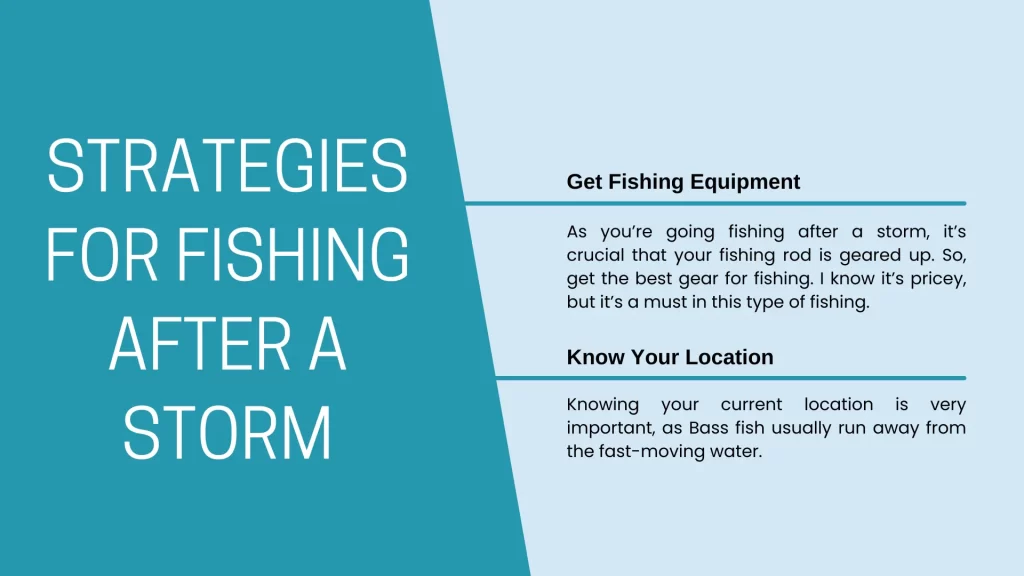
2) Know Your Location
Knowing your current location is very important, as Bass fish usually run away from the fast-moving water. So, make sure you’re not in such a place where the water is moving very strongly, or else the fish will not come to you.
This way, Much of your time will be wasted, and you may come back home empty-handed. So, use the GPS fishing finger; it will let you know about your and the fish’s location so you can be at the right place at the right time and enjoy fishing after the storm to the fullest.
Things to keep in mind when fishing after a storm
· Look for changes in water temperature:
Storms can cause a sudden drop in water temperature, which can cause fish to become more active and feed aggressively. This can make for great fishing opportunities, especially if you’re targeting species like bass, walleye, or trout. This will simply double up your fishing after a storm if you will consider these things beforehand.
· Check water clarity:
Heavy rainfall during a storm can cause water levels to rise and make the water murky. This can make it more challenging to catch fish that rely on sight to feed. However, once the storm has passed, the water can clear up quickly, creating ideal conditions for sight-feeding fish like pike or musky.
· Be mindful of debris:
After a storm, there may be debris in the water, such as logs or branches. These can create hazards for boaters and can also make it difficult to fish in certain areas. Be sure to keep an eye out for debris and adjust your fishing spots accordingly. Undoubtedly, fishing in a storm or fishing after a storm is a thrilling activity, but keep your safety a priority.
· Fish in shallow waters:
After a storm, fish will often move towards shallower waters to feed on insects and other small prey that have been washed into the water. This can create excellent opportunities for shore fishing or wading in the water to target species like trout or bass.
· Experiment with lures:
Fish can be more aggressive and willing to bite after a storm. This can make it a great time to experiment with different lures and techniques to find what works best for the conditions. Try using brighter or more colorful lures to grab their attention.
Fishing after a storm can be an exciting and productive time on the water. By keeping these tips in mind and staying aware of changing conditions, you can increase your chances of having a successful and safe fishing trip.
Advantages of Fishing after a storm
Fishing after a storm can offer a number of advantages for anglers. Here are some of the key advantages:
Increased fish activity:
After a storm, fish are often more active and feed aggressively, making them easier to catch. This can be due to changes in water temperature, clarity, and increased food sources from runoff.
More opportunities for larger fish:
With more fish activity, larger fish are more likely to be feeding as well. This can increase the chances of catching a trophy-sized fish.
Unique fishing conditions:
The aftermath of a storm can create unique fishing conditions that can be exciting for anglers to experience. The water may be clearer or have more flow, and the fish may be concentrated in different areas than before the storm.
Better lure and bait action:
The changing water conditions after a storm can make lures and bait more effective. Fish may be more willing to strike brightly-colored lures or live bait, making for a more successful fishing trip.
Fewer anglers on the water:
Many anglers will avoid fishing after a storm due to safety concerns or poor fishing conditions. This can mean less competition for fishing spots and more opportunities to have a successful trip.
Overall, fishing after a storm can offer a unique and rewarding experience for anglers who are willing to take on the changing conditions. By being prepared, keeping safety in mind, and adjusting your approach to match the conditions, you can increase your chances of having a successful and enjoyable fishing trip.

Hi, I am David. I have founded THE FISHER CAST because I believe everybody deserve to do fishing smartly. I with my team are here to make this possible for our present and future generations by giving the best hands on practical experiences and reviews.

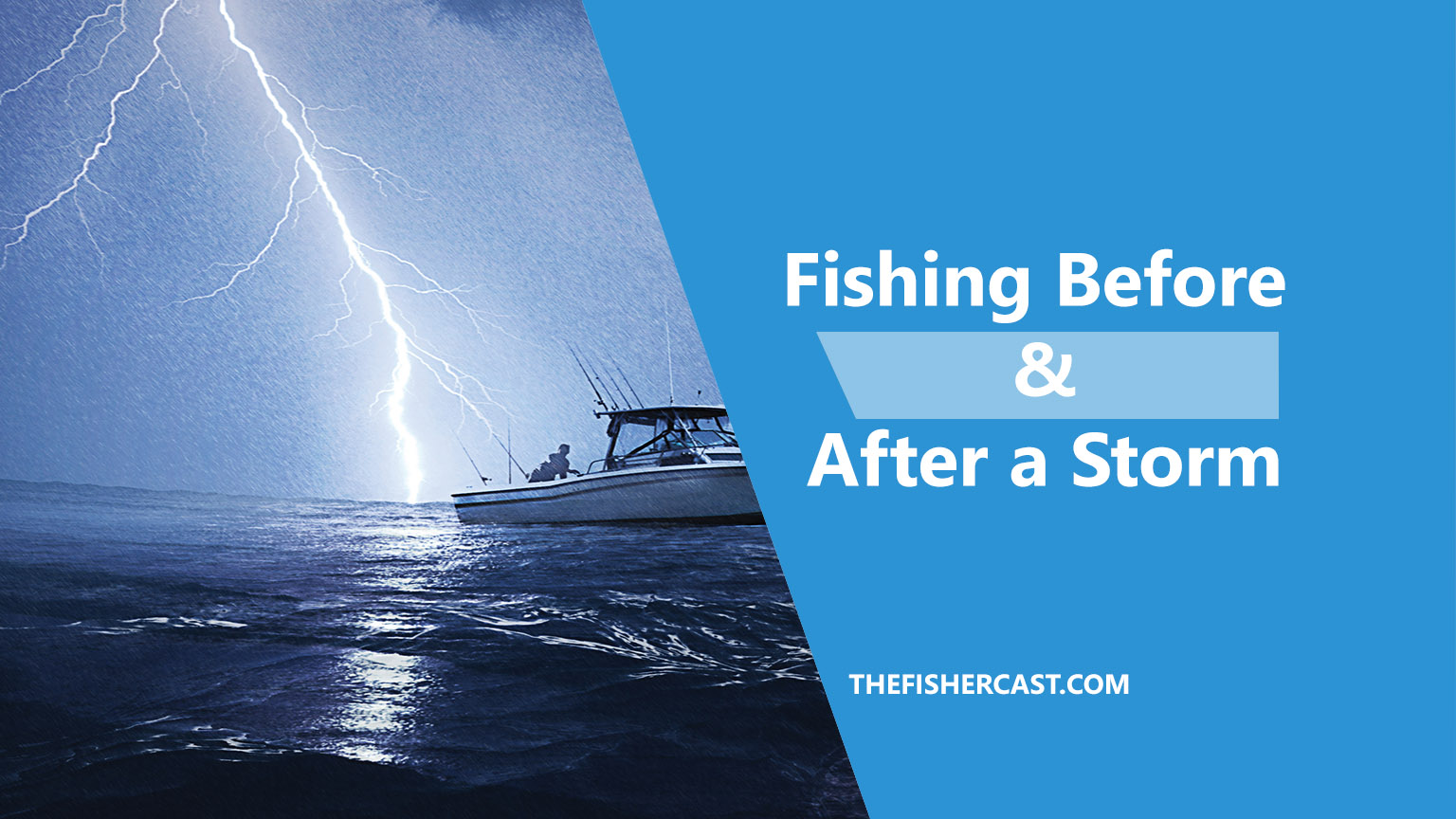

![10 Best Spinning Reels Under $100 [2023 Reviews] Best Spinning Reels Under 100](https://thefishercast.com/wp-content/uploads/2022/01/Best-Spinning-Reels-Under-100-150x150.webp)
![10 Best Trout Spinning Reels [Reviews and Buying Guide 2023] Best Trout Spinning Reels](https://thefishercast.com/wp-content/uploads/2022/02/Best-Trout-Spinning-Reels-150x150.webp)
![10 Best Line Counter Reels [2023 Buying Guide & Reviews] Best Line Counter Reels](https://thefishercast.com/wp-content/uploads/2022/02/Best-Line-Counter-Reels-150x150.webp)
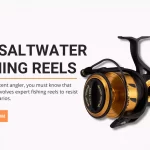
![10 Best Spinning Reels [2023 Reviews] Best Spinning Reels](https://thefishercast.com/wp-content/uploads/2022/01/Best-Spinning-Reels-150x150.webp)